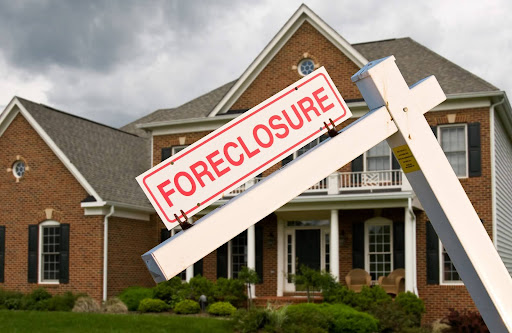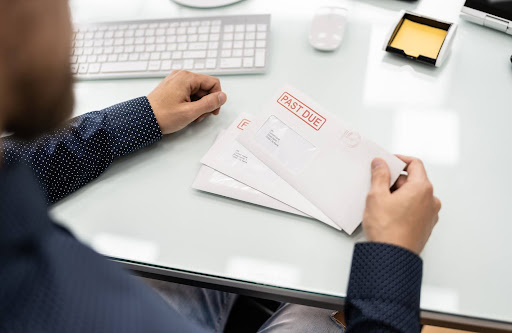Having a delinquent owner in HOA communities can be a big headache for the board. Not only are they failing to pay their fees but also imposing a financial burden on the rest of the residents. What should the board do when there’s a delinquent homeowner?
Why are Delinquencies a Problem?
Unfortunately, delinquent HOA dues are quite common in planned communities. They happen for all sorts of reasons. Some homeowners may not be able to pay their dues because of financial hardship. The homeowner might have lost a job or gotten into other debt.
Meanwhile, other homeowners may simply refuse to pay the HOA. They might disagree with the board’s methods and not understand why the fees are so high. Regardless, delinquencies can have several consequences for planned communities, including:
- Lack of Maintenance. The HOA must pay vendors and staff to clean and maintain the common areas. Delinquencies might prevent the HOA from paying for these services, resulting in a lack of maintenance.
- No Services. The HOA may fail to provide usual services, such as garbage collection and snow removal.
- Amenity Closure. HOA amenities that cannot be maintained may be closed so the HOA can focus on paying for the necessities like water, sewage, and electricity.
- Decline in Property Values. HOAs with poor upkeep and services may face lower property values. Home prices will lower, so homeowners cannot rent or sell their properties for higher prices.
- Special Assessments. The HOA may levy special assessments to cover the cost of delinquencies, burdening other homeowners.
- Increased Assessments. HOAs may try to cover the delinquent assessments by raising the fees overall for each community member.
- Homeowner Exodus. Some homeowners might find it too inconvenient or expensive to live in an HOA with many delinquent residents. As a result, many residents might move to other communities, leaving the HOA with fewer members.
- Buyer Discouragement. Potential buyers will be discouraged by the lack of maintenance and excessive fees in the community, and they will be less likely to purchase a home there.
- Dissolution. HOAs that cannot pay for upkeep and other services may become insolvent, abandoned, and eventually dissolved.
What to do About Delinquent Owners in HOA
A delinquent owner in HOA communities is certainly a problem. It causes a lot of physical, financial, and mental harm to the rest of the residents. What can the HOA do to resolve the issue? Here are some potential solutions.
1. Notify the Homeowner

The first thing an HOA can do is to send a notice to the delinquent resident. A formal letter is sometimes enough to remind them that paying dues is important — and that nonpayment can lead to certain consequences.
2. Impose Fines and Charges
Homeowners associations may issue interest, fines, and other charges for fee nonpayment. Often, the governing documents allow this as an enforcement measure against violating homeowners. Homeowners will be less likely to pay their dues late if they know it will result in monetary penalties.
3. Consider a Payment Plan
Sometimes, the delinquent homeowner may simply struggle financially due to their circumstances. HOAs may consider giving grace to the homeowner by offering a payment plan. The payment plan gives them breathing room and allows them to pay their fees in installments.
4. Report to the Credit Bureau
Homeowners associations can encourage residents to pay on time by reporting delinquencies to credit bureaus and credit reporting agencies. Delinquencies can jeopardize their credit scores and affect other aspects of life. Homeowners may be more likely to pay on time if they know their credit scores are on the line.
5. Suspend Rights and Privileges
HOAs provide various amenities like pools and fitness centers. The board can exploit these by suspending a delinquent owner’s right to use the facilities. However, remember to check the governing documents before doing this. Some provisions may prohibit the HOA from suspending privileges due to certain violations.
6. Turn to a Collection Agency
HOAs may have hundreds — or even thousands — of homeowners. In these cases, hiring a collection agency to oversee delinquent assessments may be best. The collection agency will use tried-and-tested methods to collect delinquent dues. Moreover,
7. Take it to Small Claims Court
Can an HOA in Florida sue a homeowner? Yes, they may be able to do so under certain circumstances. Homeowners associations may force residents to settle their accounts by taking them to a small claims court. The HOA can then resolve the issue legally. On the other hand, remember that small claims courts have dollar limits.
8. Place a Lien on the Property
Can an HOA in Florida take your house? Yes, they can. Florida homeowners associations are typically allowed to place liens on properties with delinquent accounts. As a result, the homeowner may have difficulty selling the home to someone else.
9. Foreclosure

Homeowners associations can foreclose a home in the community that already has a lien. Initiating foreclosure action allows the HOA to collect the unpaid balance through the sale of the home. Whoever becomes the new owner (usually the bank) will be responsible for paying off the delinquent assessments.
However, keep in mind that this should be a last-resort option. Foreclosures are often tiresome, lengthy, and costly. Once they occur within the community, they may also affect the HOA’s reputation.
How to Prevent Delinquencies in HOAs
What actions should HOAs take to prevent people from turning into delinquent owners in HOA communities? Here are some possible avenues to pursue.
- Create a Collection or Delinquency Policy. HOAs should create a clear policy outlining the consequences of late or nonpayment and the escalating steps the HOA will take when these happen. The policy will discourage residents from forgetting or neglecting to pay their dues.
- Invest in Technology. If the HOA has an online platform, homeowners may be more able to pay their assessments on time. The residents can set up automatic payments, allowing the HOA to collect dues on time each month.
- Consider Payment Plans. Payment plans allow the HOA to collect late payments at a much slower rate. Nevertheless, it’s better than letting fees remain unpaid.
- Outsource Collections. HOAs can hire HOA management companies to create collection policies, assist with financial management, and collect dues. The HOA will no longer have trouble collecting dues individually, reducing accidental delinquencies.
An Important Part of HOA Management
Homeowners associations often have trouble when a delinquent owner is involved. Nevertheless, collecting the unpaid dues is important. Doing so keeps the HOA financially healthy and keeps property values high.
Freedom Community Management offers astounding HOA management services, including fee collection, to neighborhoods in Florida. Contact us online or call us at 904-490-8191 for more details!


